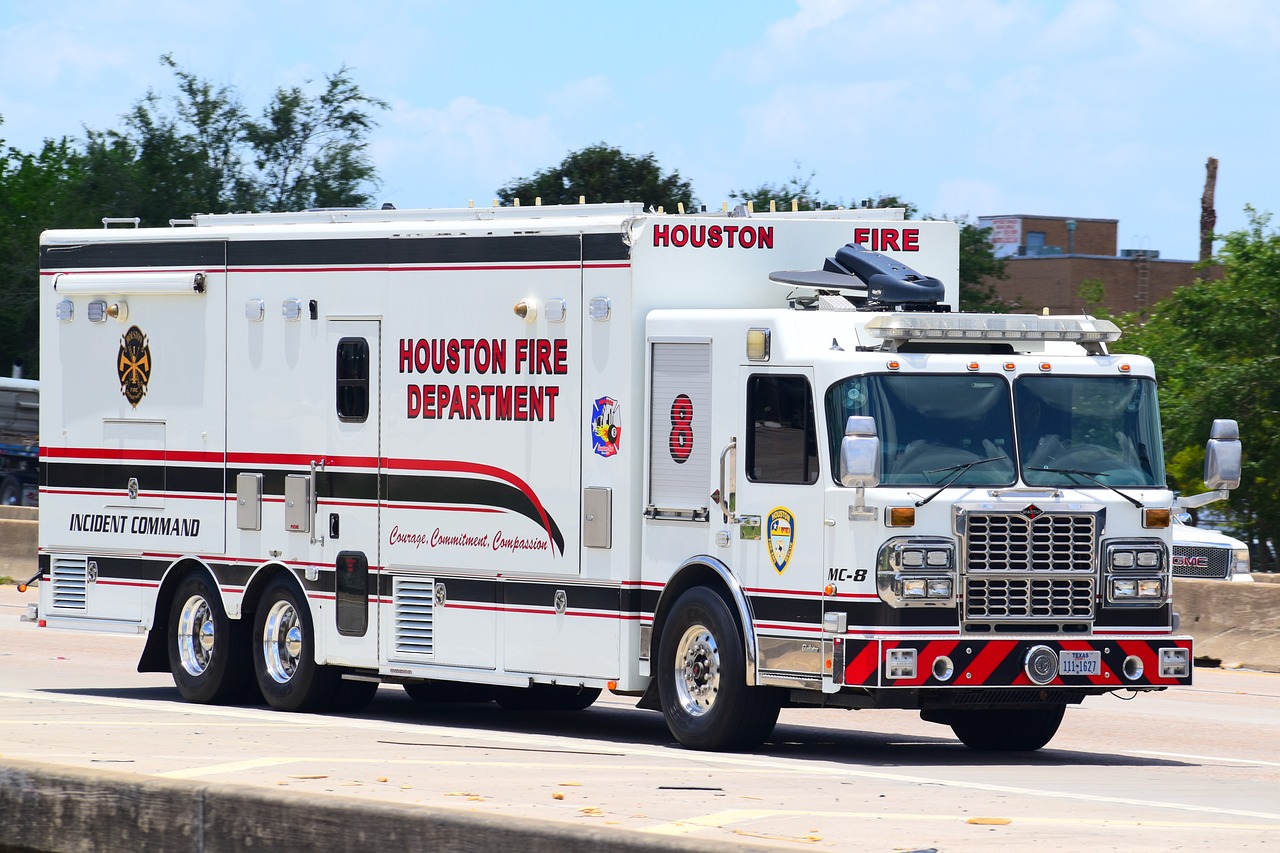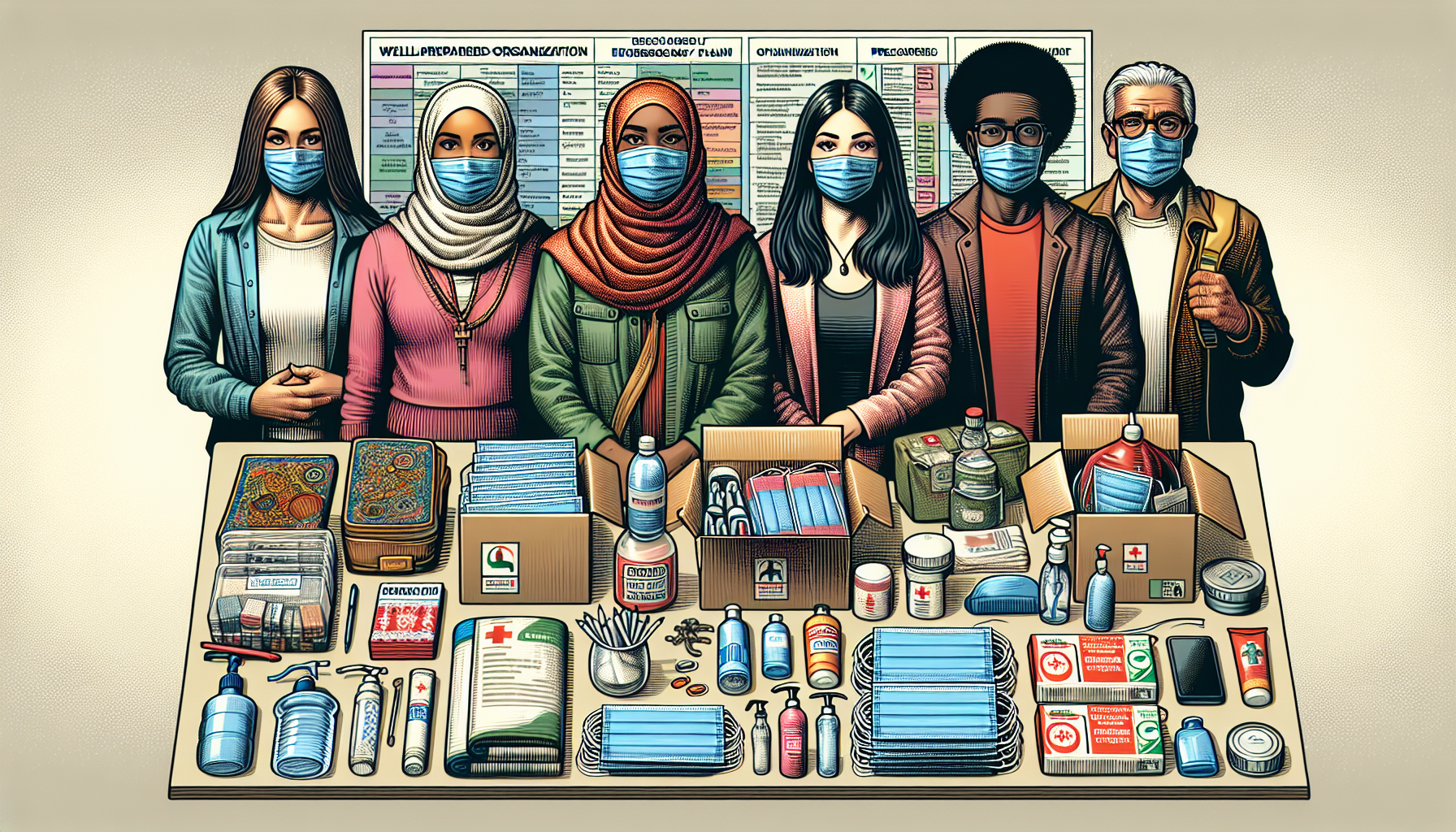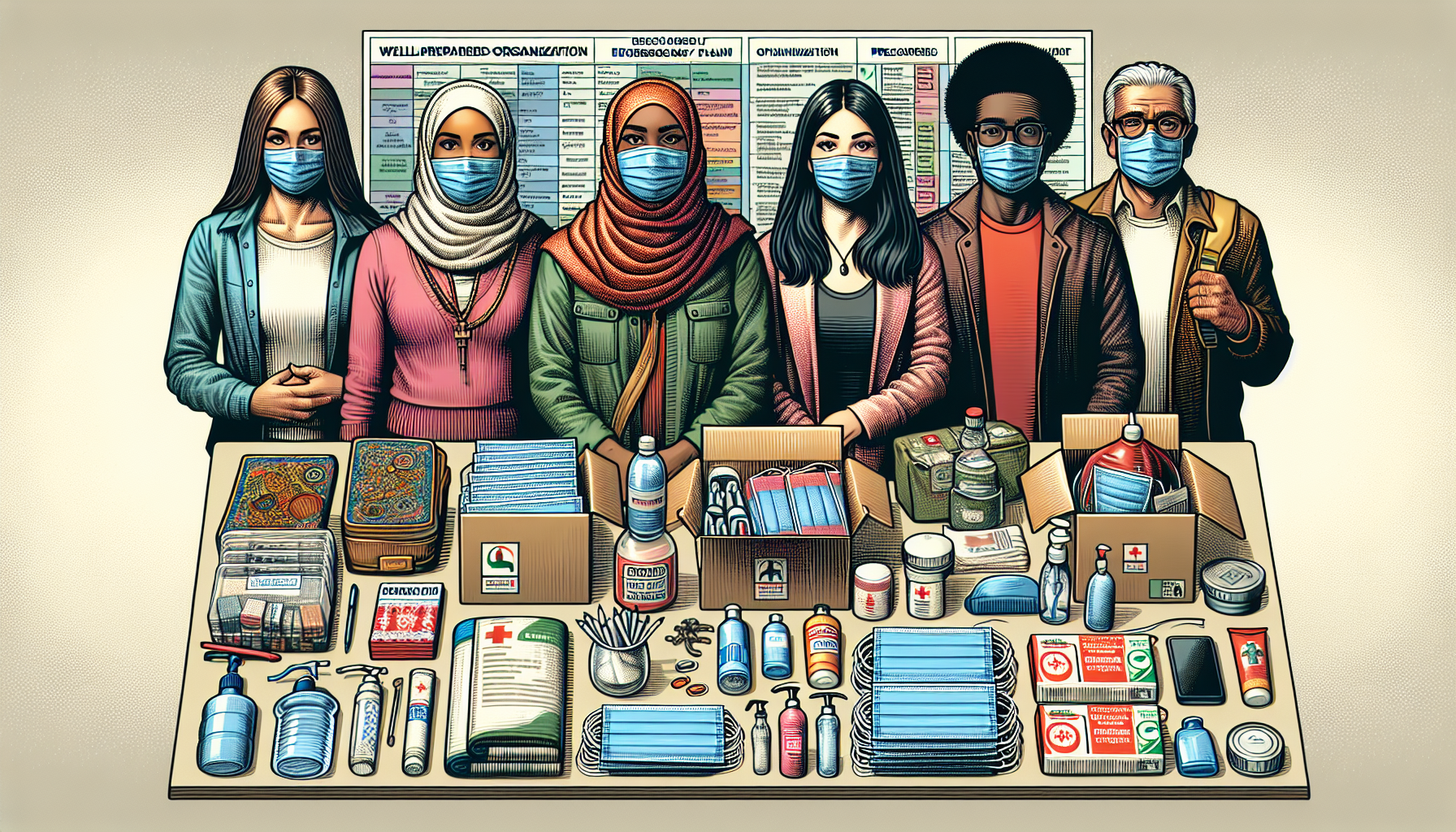In a world where the unexpected lurks around every corner, it is crucial to be prepared for any situation that may come your way. One such scenario that has been at the forefront of everyone’s minds recently is a pandemic situation. With the global outbreak of COVID-19 serving as a stark reminder of the importance of preparedness, it is essential to equip yourself with the knowledge and resources necessary to navigate through such times. In this article, we will explore practical tips and strategies on how to effectively prepare for a pandemic situation, ensuring the safety and well-being of yourself and your loved ones.
Preparing Your Home
Stocking Up on Essential Supplies
When preparing for a pandemic situation, it is important to stock up on essential supplies to ensure that you and your family have everything you need to stay safe and comfortable at home. Some key items to consider include non-perishable food items, bottled water, over-the-counter medications, cleaning supplies, personal hygiene products, and other household necessities. It is recommended to have at least a two-week supply of these items on hand.
Creating a Backup Power Plan
In the event of a pandemic situation, it is possible that there may be power outages or disruptions in your area. To mitigate the impact of such situations, it is wise to have a backup power plan in place. This can include having a generator or alternative power source, as well as ensuring that you have extra batteries for flashlights or other essential electronic devices.
Establishing a Safe Quarantine Area
To prevent the spread of illness within your household, it is crucial to establish a safe quarantine area. This area should be separate from the rest of your home and equipped with its own bathroom if possible. It should be stocked with necessary supplies to care for those who may become ill, such as tissues, hand sanitizer, disposable gloves, and masks. It is important to also have a plan in place for how to handle waste and dispose of it safely.
Creating a Sanitation and Hygiene Plan
Maintaining proper sanitation and hygiene practices is essential during a pandemic situation. Develop a plan to regularly clean and disinfect frequently touched surfaces, such as doorknobs, light switches, and countertops. Ensure that everyone in your household understands the importance of frequent handwashing and provide hand sanitizer in easily accessible areas. Additionally, establish guidelines for coughing and sneezing etiquette, such as covering your mouth with a tissue or your elbow.
Developing a Communication Plan
Communication is key during a pandemic situation. It is important to establish a communication plan in advance to ensure that everyone in your household knows how to stay connected and informed. This can include having a designated meeting place, establishing a phone tree or group chat, and setting up emergency alert systems on your mobile devices. This will help to ensure that you can quickly and effectively communicate important information and updates with your loved ones.
Ensuring Personal Health and Safety
Maintaining a Healthy Lifestyle
Maintaining a healthy lifestyle is important during a pandemic situation. This includes getting regular exercise, eating a balanced diet, and getting enough sleep. Engaging in activities that reduce stress, such as practicing mindfulness or yoga, can also contribute to overall well-being.
Regularly Washing Hands
One of the most effective ways to prevent the spread of illness is by regularly washing your hands. Make sure to wash your hands with soap and water for at least 20 seconds, especially before eating, after using the restroom, and after spending time in public places. If soap and water are not readily available, use hand sanitizer with at least 60% alcohol.
Practicing Social Distancing
During a pandemic, practicing social distancing is crucial to minimize the spread of germs. This means avoiding close contact with others and maintaining a distance of at least six feet whenever possible. It may also be necessary to avoid large gatherings and crowded places to reduce the risk of exposure.
Wearing Personal Protective Equipment
Depending on the nature of the pandemic situation, it may be necessary to wear personal protective equipment (PPE) such as face masks or gloves. Follow guidelines from healthcare authorities to determine when and how to properly use PPE to protect yourself and others.
Taking Care of Mental Health
A pandemic situation can be mentally and emotionally challenging. It is important to prioritize your mental health and seek support when needed. Stay connected with loved ones, practice self-care, and reach out to mental health professionals if you are feeling overwhelmed or anxious. Remember, it is normal to have these feelings during such uncertain times, and seeking help is a sign of strength.

Securing Finances and Documents
Maintaining Emergency Savings
During a pandemic situation, financial stability becomes especially important. It is wise to have an emergency savings fund that can cover essential expenses for at least three to six months. This will provide a buffer in case of unexpected job loss or financial hardship.
Reviewing Insurance Coverage
Review your insurance policies, such as health insurance, life insurance, and homeowners or renters insurance. Ensure that you have adequate coverage for potential medical expenses and any potential damage to your home or belongings.
Gathering and Organizing Important Documents
Organize and gather important documents such as identification papers, medical records, insurance policies, and contact information for healthcare providers. Store these documents in a secure and easily accessible location.
Creating a Financial Plan
Develop a financial plan that outlines your current financial situation, including your income, expenses, and savings goals. This will help you budget effectively and make informed decisions during a pandemic situation.
Establishing Power of Attorney
Consider establishing power of attorney to ensure that someone you trust can make important financial and legal decisions on your behalf if you are unable to do so yourself. Consult with a legal professional to ensure that this process is carried out correctly.
Staying Informed and Educated
Monitoring News and Updates
Stay informed about the latest news and updates regarding the pandemic situation. Follow reputable sources such as the World Health Organization (WHO) and the Centers for Disease Control and Prevention (CDC) for accurate and reliable information.
Following Guidelines and Recommendations
It is important to follow the guidelines and recommendations provided by healthcare authorities and local government agencies. These guidelines may include information on social distancing, travel restrictions, and other measures to prevent the spread of illness.
Participating in Community Preparedness Programs
Check if there are community preparedness programs or initiatives in your area and consider participating. These programs can provide valuable resources and information to help you and your community stay safe and prepared during a pandemic situation.
Staying Connected with Healthcare Providers
Stay connected with your healthcare providers and keep them updated on any changes or concerns regarding your health. This will ensure that you receive appropriate care and support, especially if you have any pre-existing medical conditions.
Educating Yourself and Others
Take the time to educate yourself and others about the pandemic situation. Learn about the symptoms, transmission, and prevention methods associated with the illness. Share accurate information with your family, friends, and community to help dispel misinformation and reduce fear.

Preparing for Social Distancing Measures
Stocking Up on Medications
If you regularly take prescription medications, make sure to have an ample supply on hand. Contact your healthcare provider or pharmacy to refill any necessary prescriptions in advance. It is also a good idea to stock up on over-the-counter medications for common ailments.
Shopping for Groceries and Essentials
Plan ahead and stock up on groceries and other essential items. Consider purchasing non-perishable food items, cleaning supplies, personal hygiene products, and other household necessities. Avoid panic-buying or hoarding, as this can create unnecessary shortages for others.
Creating Entertainment and Activity Plans
When social distancing measures are in effect, it is important to have a plan for staying entertained and engaged at home. Make a list of activities, such as reading books, watching movies, playing board games, or pursuing hobbies, that can keep you and your family occupied during this time.
Planning for Remote Work or Schooling
If remote work or schooling becomes necessary, ensure that you have the necessary equipment and resources to effectively carry out these activities from home. Set up a designated workspace and establish a routine to maintain productivity and focus.
Staying Connected with Friends and Family
Even when physically distanced, it is important to stay connected with your loved ones. Utilize technology to video chat, call, or message friends and family regularly. This will help alleviate feelings of isolation and maintain a sense of community.
Developing an Emergency Plan
Identifying Emergency Contacts
Compile a list of emergency contacts, including family members, close friends, and healthcare providers. Make sure everyone in your household has access to this list and understands the appropriate steps to take in case of an emergency.
Creating a Household Emergency Kit
Develop a household emergency kit that includes essential items such as first aid supplies, flashlights, batteries, non-perishable food, water, and any necessary medications. Store this kit in a location that is easily accessible to all members of your household.
Establishing Meeting Points and Evacuation Routes
Discuss and establish meeting points and evacuation routes with your household members. Make sure everyone knows where to go and how to communicate in case of an emergency that requires leaving your home.
Learning Basic First Aid and CPR
Consider taking a first aid and CPR course to learn essential life-saving skills. This knowledge can be invaluable in emergency situations and can help you provide assistance to others in need.
Preparing for Supply Chain Disruptions
Anticipate potential disruptions in the supply chain and be prepared to adapt accordingly. Have alternative options in place for acquiring necessary supplies and consider supporting local businesses and producers whenever possible.
Maintaining Cleanliness and Disinfection
Cleaning and Disinfecting Surfaces
Regularly clean and disinfect frequently touched surfaces in your home, such as doorknobs, light switches, countertops, and electronics. Use EPA-approved disinfectants and follow the instructions provided to ensure effective disinfection.
Handling Laundry and Personal Items
When handling laundry and personal items, follow proper hygiene practices. Wash clothing, towels, and bedding regularly using the warmest appropriate water setting. Avoid sharing personal items such as towels, utensils, and cups.
Disposing of Waste Properly
Dispose of waste, including used tissues and other disposable items, properly. Use lidded trash bins and follow local guidelines for waste disposal. If you or someone in your household becomes ill, take additional precautions by double-bagging and sealing all waste before disposing of it.
Practicing Food Safety Measures
Adhere to food safety measures to reduce the risk of contamination. Wash fruits and vegetables thoroughly, handle food with clean hands, and store perishable items at appropriate temperatures. Pay attention to expiration dates and avoid consuming expired or spoiled food.
Reducing the Risk of Contamination
Take precautions to reduce the risk of contamination within your household. Minimize contact with potentially contaminated surfaces when outside of your home, wash your hands immediately upon returning, and avoid touching your face.
Preparing for Healthcare Support
Identifying Healthcare Facilities
Familiarize yourself with the healthcare facilities in your area. Know which hospitals and clinics are designated for COVID-19 testing and treatment. Keep their contact information readily available in case of emergencies.
Knowing the Emergency Hotline Numbers
Memorize or keep a list of emergency hotline numbers, such as the local emergency services or the national healthcare hotlines. These numbers can be invaluable in case of a medical emergency or when seeking guidance regarding COVID-19-related concerns.
Ensuring Essential Medications
Ensure that you have a sufficient supply of essential medications on hand. Contact your healthcare provider or pharmacy to arrange for prescription refills, if necessary. Consider signing up for mail-order prescriptions to minimize contact.
Knowing Telehealth Options
Familiarize yourself with telehealth options available to you. Many healthcare providers offer virtual consultations, which can be especially beneficial during a pandemic situation when in-person visits may be limited or discouraged.
Understanding Health Insurance Coverage
Review your health insurance coverage to understand what is covered in case of a pandemic or emergency situation. Be aware of any telemedicine services or other resources that may be available to you.
Building a Support Network
Creating a Neighborhood Support Group
Consider creating a neighborhood support group to foster a sense of community and support during a pandemic situation. This group can share resources, information, and provide assistance to those in need, particularly vulnerable individuals.
Establishing a Communication Network
Establish a communication network within your community or neighborhood. This can include phone trees, group chats, or social media groups to stay connected, share updates, and provide support to one another.
Helping Vulnerable Individuals
Identify and reach out to vulnerable individuals within your community who may need assistance. Offer to help with grocery shopping, medication pickups, or other essential tasks. Remember to practice appropriate social distancing and safety measures when providing assistance.
Sharing Resources and Information
Share reliable and accurate resources and information within your community. Help combat misinformation and ensure that everyone has access to the information they need to stay safe and make informed decisions.
Supporting Local Businesses
During a pandemic situation, local businesses may experience financial hardships. Support them whenever possible by shopping locally, ordering takeout from local restaurants, or purchasing gift cards for future use. These small actions can make a significant difference to the local economy.
Reviewing and Updating the Plan
Regularly Reviewing and Assessing the Plan
Regularly review and assess your pandemic preparedness plan to ensure that it remains up to date and relevant. Consider any changes in guidelines or recommendations and adjust your plan accordingly.
Updating Contact Information
Regularly update and verify your contact information, including emergency contacts and healthcare providers. Accurate contact information is essential for effective communication and receiving timely updates.
Replenishing Supplies and Medications
Keep track of your essential supplies and regularly replenish them as needed. Maintain a sufficient stock of non-perishable food items, medication, cleaning supplies, and personal hygiene products to ensure that you are prepared for any situation.
Adjusting the Plan for Changing Situations
Stay informed about changing situations and adjust your plan accordingly. Be flexible and adaptable in response to new developments. Follow recommendations from healthcare authorities and local government agencies.
Seeking Professional Advice when necessary
If you have any specific concerns or unique circumstances, seek professional advice when necessary. Consult with healthcare professionals, financial advisors, or legal experts to address any questions or uncertainties you may have regarding your pandemic preparedness plan.

